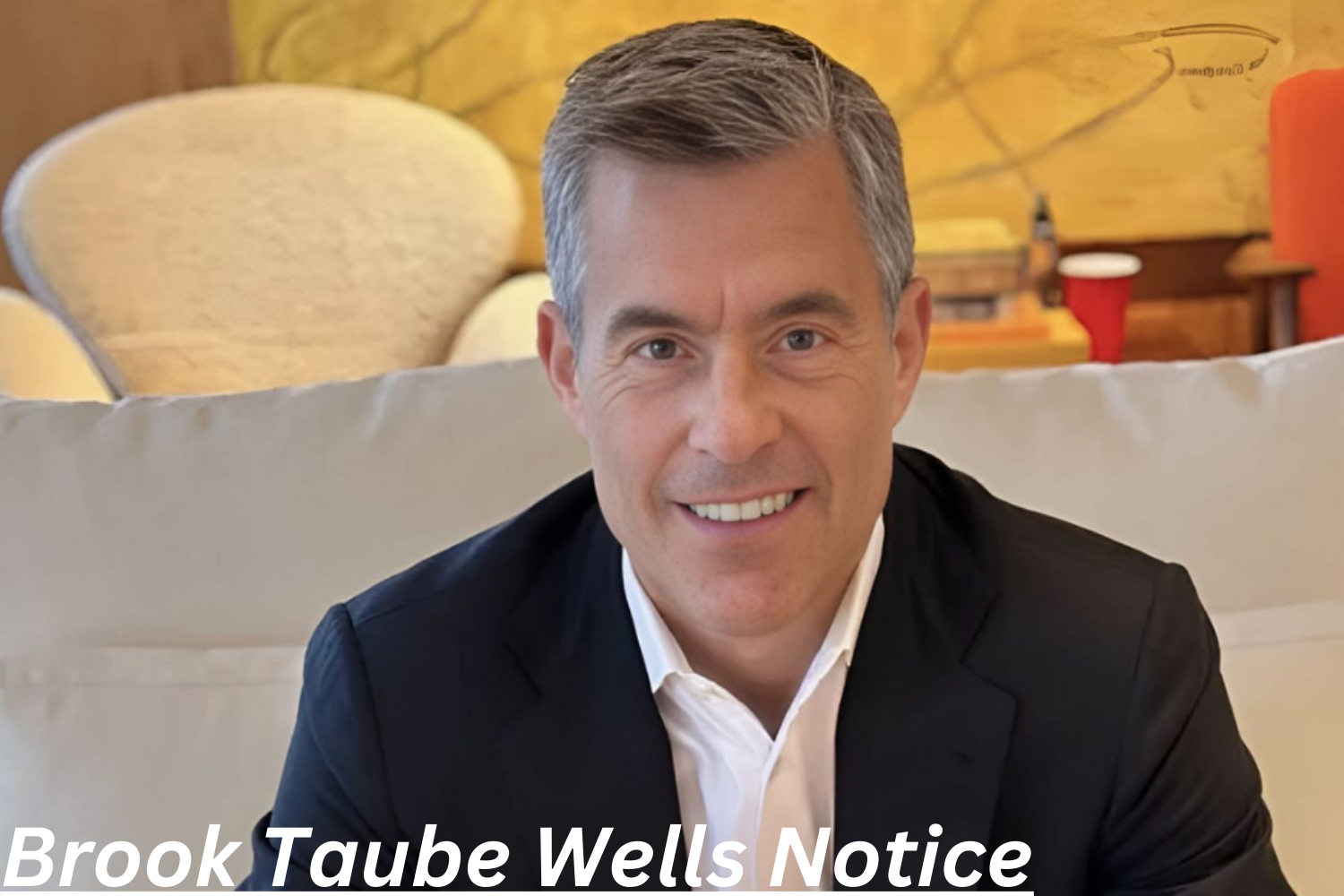Navigating the world of finance and securities can often feel like walking through a maze. One moment, everything seems seamless; the next, you find yourself facing a Brook Taube Wells Notice, especially if your name is Brook Taube. This legal document can send waves of uncertainty and concern through any individual or business involved in financial markets. Understanding what it means—and how to respond—can make all the difference.
Whether you’re an industry professional or just curious about the implications of receiving such a notice, delving into this topic is crucial for protecting your interests. Let’s unpack the details surrounding Brook Taube’s situation and explore what a Wells Notice truly entails.
What is a Wells Notice?
A Wells Notice is a formal communication issued by the Securities and Exchange Commission (SEC) in the United States. It serves as an advisory to individuals or companies under investigation for potential violations of securities laws.
Receiving this notice indicates that the SEC has gathered sufficient evidence suggesting wrongdoing. This document outlines specific allegations and provides details about the alleged misconduct.
It’s important to understand that a Wells Notice does not equate to a criminal charge or civil enforcement action. Instead, it allows recipients an opportunity to respond before any official charges are filed.
The recipient usually has 30 days to submit a response, often referred to as a “Wells Submission.” This submission can argue against the findings presented in the notice, aiming to persuade regulators not to proceed with enforcement actions.
How Does the Wells Notice Process Work?
The Wells Notice process involves several key steps that can be daunting for those involved. First, the regulatory agency conducts an investigation into potential violations of securities laws. If they find sufficient evidence, a Wells Notice is drafted.
This notice outlines the allegations and provides the recipient with essential details about the infractions being considered. It serves as a formal warning before any enforcement action is taken.
Once received, individuals have 30 days to respond. This response may include arguments against the proposed charges or additional evidence supporting their case. The regulatory body will review this submission carefully.
After considering all information presented, officials decide whether to proceed with enforcement actions or drop the matter altogether. Understanding each stage is crucial for anyone facing such circumstances; it helps in navigating this complex legal landscape effectively.
Potential Implications of Receiving a Wells Notice
Receiving a Wells Notice can be a significant event for any individual or organization. It often indicates that regulators believe there is enough evidence to pursue enforcement actions.
The implications are serious. A Wells Notice usually signals potential civil charges, which could lead to hefty fines or other sanctions. These consequences can affect personal and professional reputations.
Additionally, it may impact ongoing business operations. Companies might find themselves under increased scrutiny from investors, clients, and regulatory bodies.
Legal battles resulting from a Wells Notice can also drain resources and time. This distraction might hinder normal business functions and impede growth opportunities.
Moreover, the emotional stress of facing such allegations cannot be understated—it weighs heavily on individuals involved in the process.
Legal Considerations and Rights for Individuals Receiving a Wells Notice
Receiving a Brook Taube Wells Notice can feel overwhelming. It’s crucial to understand your rights during this process.
Individuals have the right to respond and present evidence before any formal charges are brought against them. This is an opportunity to clarify misunderstandings and potentially avoid legal repercussions.
Another important factor is confidentiality. While the notice may be public, specific details surrounding it might not be. Individuals should exercise caution when discussing their situation publicly or with outsiders.
It’s also essential for individuals to consult with legal counsel experienced in securities law or regulatory matters. They can provide guidance on how best to navigate these challenges while protecting one’s interests effectively.
Knowing that you have options can alleviate some stress associated with receiving a Wells Notice. You don’t have to face this complex issue alone; support is available.
Tips for Responding to a Wells Notice Effectively
Receiving a Wells Notice can be daunting. It’s crucial to approach your response strategically.
Start by carefully reviewing the notice’s contents. Understand what allegations are being made against you and gather any relevant documentation that supports your case.
Engage legal counsel early on. Experienced attorneys can provide invaluable insights into the nuances of securities law, helping you craft an effective response.
When preparing your written reply, be clear and concise. Address each point raised in the Wells Notice directly, providing evidence where applicable. Avoid emotional language; stick to factual statements.
Consider requesting a meeting with regulators if appropriate. This can sometimes facilitate open dialogue and clarify misunderstandings before formal proceedings begin.
Remain calm throughout this process. A measured response is often more persuasive than one driven by anxiety or frustration.
Conclusion: The Importance of Seeking Legal Counsel During this Process
Navigating the complexities of a Brook Taube Wells Notice can be daunting. The ramifications of such a notice can significantly impact one’s life and career. It is crucial to understand that receiving a Wells Notice does not equate to guilt; it merely indicates an investigation.
Individuals facing this situation should prioritize seeking legal counsel. Experienced lawyers provide invaluable guidance, helping to interpret the implications and strategizing responses effectively. They will offer insights into your rights during this process and ensure that you take informed steps.
The stakes are often high when dealing with regulatory bodies or financial authorities, making professional support essential for navigating potential consequences and protecting your interests. Taking action early by consulting with legal experts can make all the difference in how you address these challenges moving forward.



